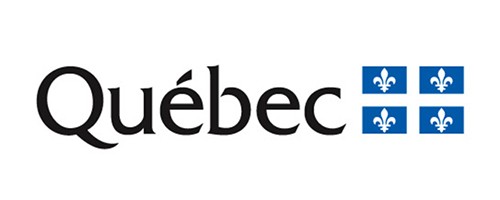Research in Green and Smart Building in Québec City
Is innovation in the ever-evolving field of green and smart building something you strive for? The Québec City region is a flourishing place for research in this sector. In an effort to really advance the field, research groups and centres are exploring diverse aspects of construction, from design and materials to urban planning and demolition.
Find out more about the various establishments that contribute to the development of the green and smart building industry.

FPInnovations – Forintek Branch
The world’s largest not-for-profit forest research institute and a global leader in terms of technology research and transfer for wood products, FPInnovations specializes in the creation of scientific solutions in support of the Canadian forest sector’s global competitiveness. The organization covers such fields as forest operations, pulp and paper, wood products and bio-sourced products.
Located in Québec City, the research centre (Forintek branch) specializes in wood products, researching aspects like innovative building materials, efficient manufacturing and increasing market acceptance for new products.
Learn more about FPInnovations on their website.
The Industrial Research Chair on Eco-Responsible Wood Construction (CIRCERB)
An integrated academic platform paired with an industry consortium, the CIRCERB aims to develop eco-responsible solutions using wood-based materials to reduce the ecological footprint of buildings. To implement truly durable projects, the research chair works across the whole network of value creation in the construction sector.
The CIRCERB’s work covers building design, construction and operation, allowing for a truly comprehensive vision of wood-based products and their applications in green building.
Visit the Industrial Research Chair on Eco-Responsible Wood Construction website to learn more.
Unité mixte de recherche en sciences urbaines (UMRsu)
The UMRsu brings together actors of the industry, cities, and universities on R&D projects for the development of smart and sustainable cities. Combining social sciences, engineering, industry 4.0, artificial intelligence and data sciences, this research unit explores every aspect of successful, large-scale and innovative projects.
The UMRsu fosters the development of new skills, personnel training and knowledge transfer as well as the creation of new businesses related to the cities of the future. Having experienced strong growth over the past few years, the research sector has built several international partnerships to integrate the ideas and skills learned from countries like Japan, Belgium and Scandinavia.
Interested? Find out more about the projects and services from the Unité mixte de recherche en sciences urbaines directly on their website.
Centre de recherche industrielle du Québec (CRIQ)
The CRIQ supports technology information among Quebec manufacturers, including businesses offering construction products and systems. By proposing an environment that is conducive to the development, experimentation and application of new production techniques, the centre allows businesses to offer distinctive, high value-added projects.
To learn more about this organization’s services, visit the Centre de recherche industrielle du Québec’s website.
The INRS’s Eau Terre Environment Research Centre (ETE-INRS Research Centre)
The Institut national de la recherche scientifique’s Eau Terre Environment Research Centre (Research Centre on Water, Earth, and the Environment) works towards improving environmental protection and conservation and developing natural water and land resources. The Centre encourages professors, students and research professionals to reflect on the planet’s actual needs and propose real solutions using a multidisciplinary approach.
The ETE-INRS Research Centre’s activities are organized around four focus areas: aquatic biogeochemistry, hydrology, earth sciences, and environmental decontamination and waste reclamation, the latter being potentially highly relevant in the field of green building.
Learn more about the INRS’s Eau Terre Environment Research Centre’s activities on their website.
Université Laval
The only university in the province of Quebec to offer expertise in architecture, mechanical engineering, wood engineering and civil engineering, Université Laval proposes an ideal environment for designing the buildings of the future. By bringing together these fields of expertise, the university contributes to the development of other research organizations in the region while also training a bright future generation capable of handling the challenges in the field of green and smart building.
Learn more on this establishment by visiting Université Laval’s website.
Contact us today!
Reach out to Québec International for any questions you may have, to book an appointment, or to discuss your project. Our team will be in contact with you as soon as possible.



